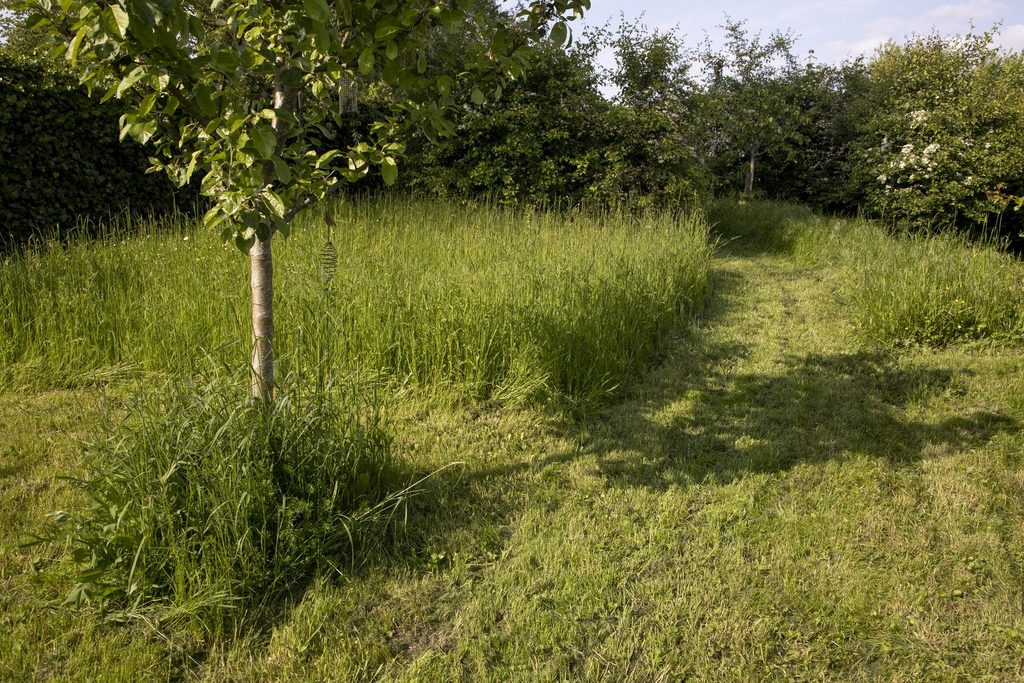More bees, more plants, as well as endangered plant and flower species, have started to emerge in the gardens of people who participated in the campaign against mowing last month.
For the third year in a row, people in Flanders were urged not to mow their lawns or to mow them less frequently in May as part of the 'Don't Mow May' (Maai Meit Niet) to boost biodiversity in their gardens. Thousands of participants are now reaping the rewards.
A total of 124 hectares of lawns were not mowed, which is more than last year (115 hectares). While this is less than in the campaign's first edition (145 hectares), the organisers explained that this is largely due to cities and towns making the switch to a more thoughtful mowing policy instead of not mowing all the grass for a month.
This abundance of vegetation resulted in 21 million bees being able to feed from the unmowed gardens every day – more than in 2021 (14 million) and 2022 (17 million).
Gardens restored
Participants were also asked by the organiser of the campaign, Knack, to count the number of flowers per square metre in their garden at the end of May. A total of 135,478 flowers were counted in 1,406 gardens.
The most frequently counted flower was once again the daisy, followed by the creeping buttercup and stork's bill. The dandelion was the nectar champion, yielding a total of 9.71 micrograms of nectar sugar per square metre daily.
People also found endangered plant and flower species in their gardens last month, including six different species of orchids and three ratchet species.
Mowing every three weeks is ideal for those who want to enjoy a patch of lawn and help nature, the researchers stress.
"It also benefits people with hay fever, because grass will not flower if it only grows for three weeks. So mowing every three weeks helps both pollinators and hay fever sufferers," said Professor of Ecology Koenraad Van Meerbeek at KU Leuven university.
Related News
- Belgians urged not to mow their lawns
- Belgium's botanical gardens and arboretums unveil massive online database
The only downside to the successful campaign is that many people are now rushing to trim their overgrown gardens, resulting in organic waste processing plants not being able to handle the massive influx of grass trimmings.
Local municipalities have urged people to hold out a little longer before trimming their lawns or, if mowing is urgent, to take the clippings directly to the recycling centre rather than mixing them in with organic waste.

